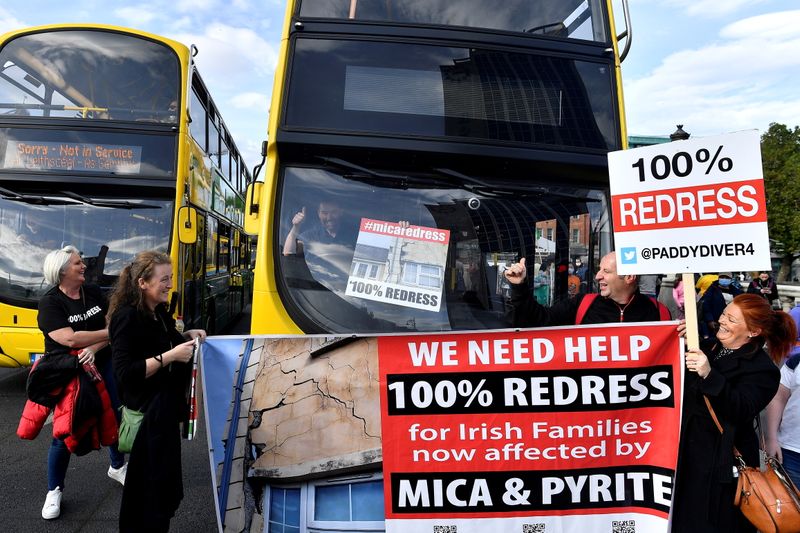DUBLIN (Reuters) – Ireland will provide 2.2 billion euros ($2.5 billion) to help repair or rebuild homes constructed using defective blocks during the light-touch regulation of the Celtic Tiger boom over a decade ago, the government announced on Tuesday.
The fund will cover 7,500 homes, primarily in the northwest county of Donegal, where families who have been campaigning for years for recourse have said the deficiencies have caused their walls to “crumble like Weetabix”.
They say their homes have been structurally weakened by excessive amounts of mica, a natural mineral present in the blocks.
While the government scheme will be spread over a number of years and include a levy on the building sector to claw back 80 million euros a year, the total cost represents more than the annual budget provided to most government departments.
“It is a significant intervention by the exchequer. While we’re not legally liable, this is about what I believe is a moral obligation on the state… because no one else is going to step in,” Housing Minister Darragh O’Brien told a news conference.
“The intervention is extraordinary when one compares it to other jurisdictions that have dealt with issues such as this.”
O’Brien said the scheme – which will have a 420,000 euro maximum grant cap per home – would cover “pretty much all of the costs” for homeowners.
Campaigners from the affected homes – who have led a number of large protests to the parliament in Dublin – called for the state to cover 100% of their costs. Some opposition politicians complained on Tuesday that the scheme did not go far enough.
($1 = 0.8793 euros)
(Reporting by Padraic Halpin; Editing by Mark Heinrich)






















